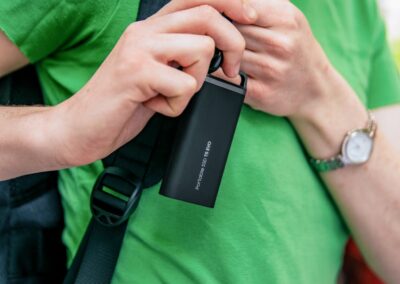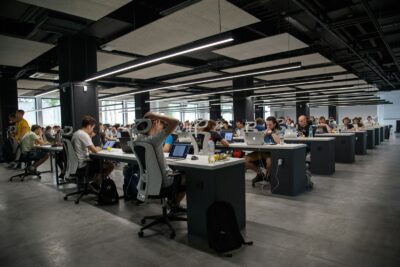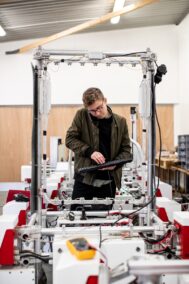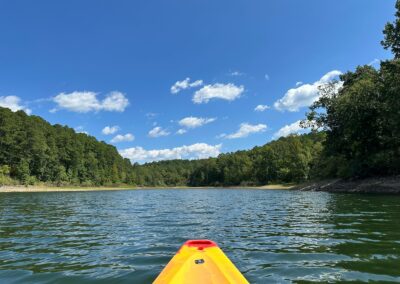Transforming Travel Experiences with Augmented Reality
Empowering Travelers with Disabilities through AR
The development of AR for enhancing accessibility in the travel industry represents a significant leap forward in making travel experiences more inclusive and supportive for people with disabilities. Augmented Reality (AR) technology can overlay digital information onto the physical world, providing real-time assistance and enhancing the overall travel experience. This technology is particularly beneficial in bustling cities like Riyadh and Dubai, where navigation and accessibility can pose challenges for travelers with disabilities.
AR applications can offer various functionalities that cater to the needs of disabled travelers. For instance, AR can provide real-time translation and interpretation services, aiding those with hearing impairments by converting spoken language into text displayed through smart glasses or mobile devices. Similarly, AR can guide visually impaired travelers by using audio cues and haptic feedback to navigate through unfamiliar environments safely.
Moreover, AR can enrich the cultural experience for travelers with disabilities by offering interactive guides at tourist attractions. These guides can provide detailed information about historical sites, museums, and landmarks through audio descriptions and visual enhancements, making the experience more engaging and accessible. This technology not only enhances the travel experience but also promotes inclusivity and equal access to cultural heritage.
Technical Requirements for Developing Accessible AR Applications
Developing effective AR applications for enhancing accessibility requires addressing several technical requirements. First and foremost, the application must have precise location tracking and spatial mapping capabilities. This is crucial for providing accurate navigation assistance and ensuring that digital overlays align correctly with the physical environment. Advanced GPS technology, computer vision algorithms, and robust sensor integration, including accelerometers and gyroscopes, are essential components.
High-quality content creation is another critical aspect. Developers need to create clear and intuitive interfaces that are easy for users to interact with. This involves designing user-friendly navigation systems, accessible controls, and high-contrast visuals to aid users with various disabilities. Additionally, incorporating audio descriptions and haptic feedback can significantly enhance the usability of AR applications for people with visual and hearing impairments.
Battery efficiency is also a key consideration. AR applications can be power-intensive, and prolonged usage may quickly drain device batteries. Developers must optimize energy consumption through efficient coding practices and leverage hardware acceleration when possible. Ensuring that the application runs smoothly without excessive battery drain is crucial for maintaining user satisfaction and device reliability during travel.
Leadership and Project Management in AR Development for Accessibility
Effective leadership and project management are essential for the successful development of AR applications for accessibility in the travel industry. Leaders must establish a clear vision and strategic objectives, ensuring that the project aligns with the needs of disabled travelers and market trends. Continuous research and development are necessary to stay ahead of technological advancements and competitive offerings.
Project managers play a crucial role in coordinating the development process, overseeing the integration of various technological components, and ensuring that the project adheres to timelines and budgets. Employing agile methodologies can facilitate iterative development, allowing teams to quickly adapt to changes and incorporate user feedback. This flexibility is vital in the fast-paced world of AR technology.
Collaboration with stakeholders, including disability advocacy groups, tourism boards, and technology providers, is essential for creating practical and user-friendly AR applications. Engaging with these groups provides valuable insights into real-world applications and helps developers tailor their solutions to meet specific needs. This collaborative approach ensures that the final product is both innovative and effective.
The Future of AR in Enhancing Accessibility in Travel
The future of AR for enhancing accessibility in the travel industry holds immense potential as technology continues to evolve. Advances in Artificial Intelligence (AI) and machine learning will further enhance the capabilities of AR applications, enabling more sophisticated spatial recognition and personalized user experiences. AI can predict user behavior and preferences, offering customized navigation routes and points of interest based on individual needs.
Furthermore, the integration of AR with other emerging technologies, such as blockchain and the metaverse, can create more secure and immersive travel experiences. Blockchain can ensure the integrity and privacy of user data, while the metaverse can offer virtual simulations and pre-visualizations of travel routes, enhancing user engagement and planning.
In conclusion, the development of AR applications for enhancing accessibility in the travel industry requires a comprehensive understanding of the technical requirements and a commitment to optimizing performance. By focusing on accuracy, efficiency, and user experience, developers can create powerful tools that transform how travelers with disabilities navigate and interact with their world. As technology advances, AR applications will become increasingly integral to the travel industry, offering unprecedented convenience and inclusivity for all travelers.
—
#ARForEnhancingAccessibility, #AugmentedReality, #TravelIndustry, #AccessibilityTechnology, #ARApplications, #DisabilitySupport, #ModernTechnology, #BusinessSuccess, #LeadershipSkills, #ProjectManagement, #SaudiArabia, #UAE, #Riyadh, #Dubai, #ArtificialIntelligence, #Blockchain, #TheMetaverse























